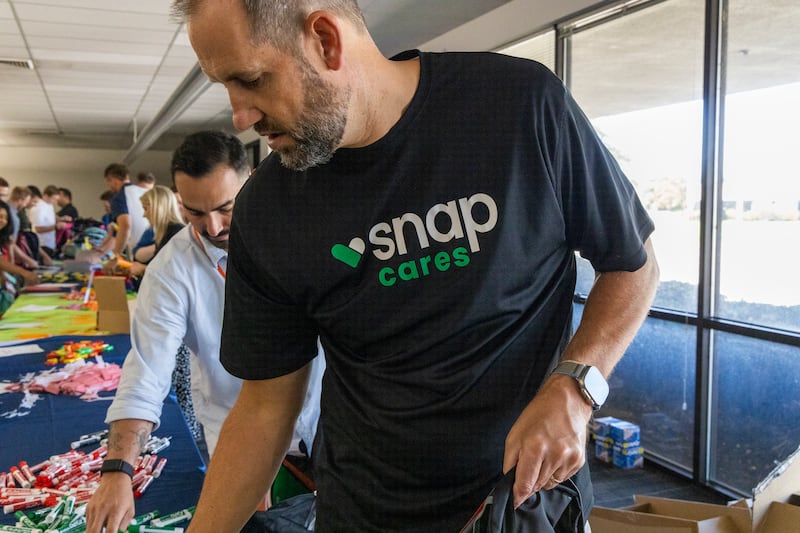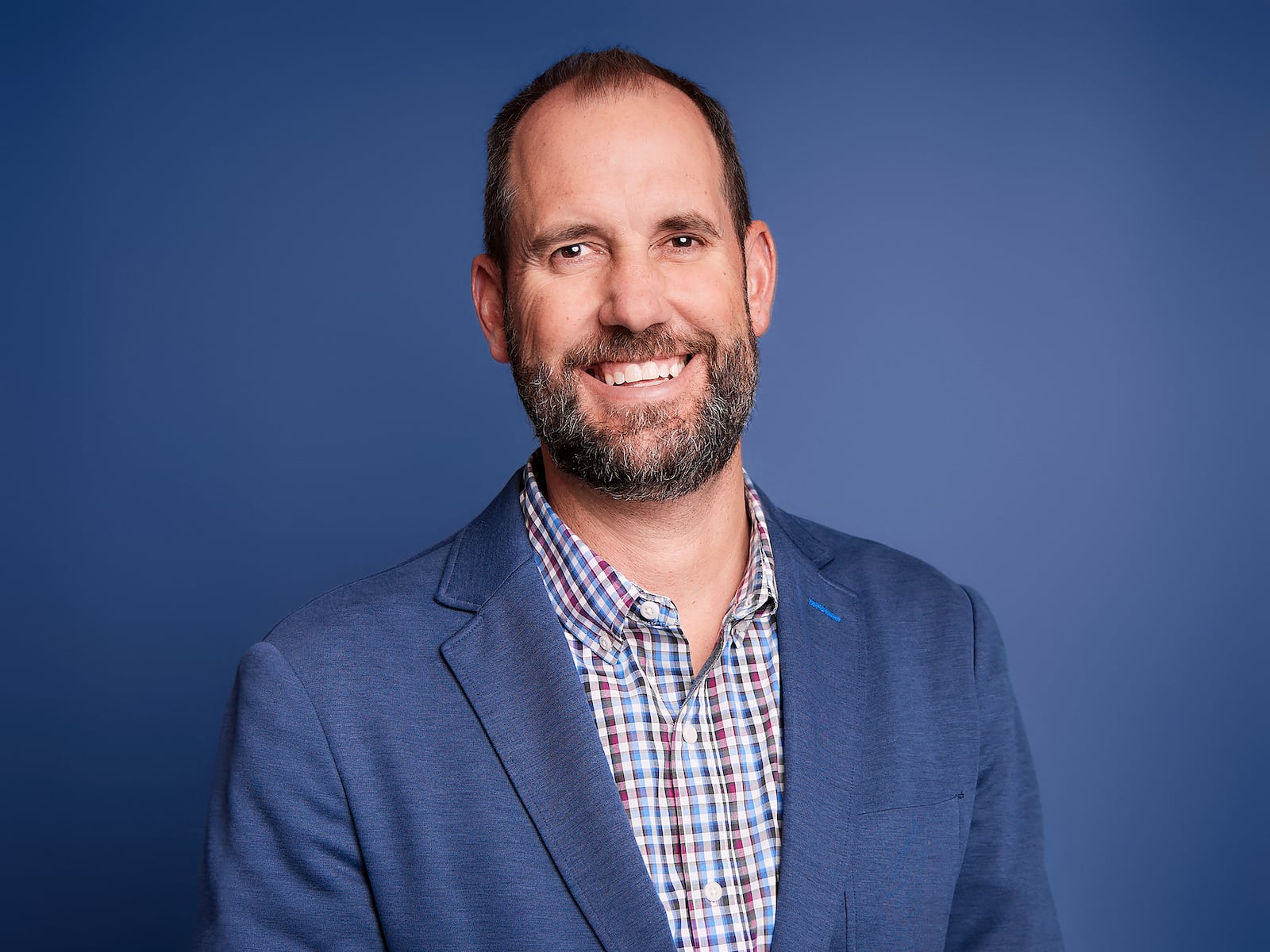I’m a serial entrepreneur. On my father’s side, we have entrepreneurs four generations deep; on my mom’s side, it goes back five generations. It’s safe to say I was cut from that same cloth and born into that legacy. Working for anyone other than myself never even crossed my mind.
I got my start in the real estate industry, and for a time, I was a real estate developer. It went well right up until it didn’t. In 2009, I got caught in the real estate buzzsaw that was the housing market crash, and it was the beginning of an end. Fortunately, the company I founded had a lending component attached — bridge loan funds, essentially short-term financing for other real estate developers — and it gave me an idea for another company. What’s more, I really liked the lending side of the business.
As a real estate developer, I was heavily leveraged. As the financial crisis dragged on, bankers called frequently. I would end a call with one bank and immediately put on my lender hat and call one of my borrowers. The more familiar I became with that world, the more I realized I’d rather do it instead. If you structured debt correctly, you could make equity-type returns with the added benefit of some downside protection. That helped switch my mindset. I’d rather be in a business that served a diversified group of industries and customers.
To that end, I started Snap Advances, where we advanced money to other retailers and business owners. It was a unique concept that allowed repayment via a percentage of their sales.
As the real estate market presented challenges, my small business funding enterprise thrived. Our sales force was knocking on doors, trying to sell cash advances to other businesses. While many companies didn’t need an advance, I heard from business owners that what they really needed was a financing option for their customers. As an entrepreneur, I heard this problem a few times and then thought I could come up with a business model to help solve it.
With customers unable to make purchases and merchants who couldn’t provide them with proper financing, an idea surfaced that allowed us to fill both needs. Aspiring entrepreneurs often think they need to be like scientists — trying to invent the not yet tried, the impossible. But in my experience, many business opportunities are right in front of you if you care to listen and understand another’s pain points. It is surprising to me that executing on some very basic measures can place you ahead of many other businesses.
When the right idea finally took hold, I created another business. In 2012, Snap Finance was born, providing point-of-sale (POS) lease-to-own financing to millions of consumers who couldn’t qualify for traditional financing. It filled a need that was even larger than I expected. Today, we partner with more than 50,000 merchants nationwide, attracting over 1 million new customers annually.
Building on a tiny idea proved itself worthy many times over.
From startup challenges to industry leadership
When we started Snap Finance, it was primarily to help potentially credit-challenged consumers at the point of sale in a retail environment. One way we did that was to speed up the process. Before Snap existed, retailers often had to fax copies of pay stubs along with bank statements and utility bills. It was tedious and time-consuming. We updated that process in a major way, allowing for yes-or-no decisions in seconds.
Six months into our first year, Snap was doing well. Our value proposition resonated with our merchant partners and consumers, and it was growing. Overall, everyone was excited.
Unfortunately, we experienced speed bumps in the form of fraud. The underwriters and I looked through statements and noticed fraudulent activity: consumers who had either gone into bad debt or, in some cases, had not made a single payment toward the financing we had provided. Transactions were being approved for individuals who had no intention of repaying them. The more frequent it became, the more concerned we were about it.
That problem really challenged us and forced us to grow our skillset. We needed a much better data analytics group and people much wiser than myself who were more capable and experienced at stopping these problems immediately. That was a pivot for the company that allowed us to detect fraud early on, even leading to a best-in-class recognition in that space.
Essentially, once weak areas were made strong, we improved our processes. Customers began to be approved for higher amounts than our competitors could offer.

Hindsight = Growth
The great financial crisis is one of the best things that has happened to me. It led me on this journey. The happy discovery is that I’m better suited to run this type of business. Coupled with that is an added ability to learn from past mistakes. Every new venture I’ve started has allowed me to set up a better model than the one I had prior, and an overall better business is the end result. I now have a company that better suits my strengths and the strengths of those on my team. Our value proposition resonates much more strongly.
When Snap Finance started, it was done very intentionally. It was more than a happy accident. We thought through our mission statement. We knew what we wanted to do. We understood our core values, which included acting with integrity and inviting new ideas from anyone within the company. Because that planning was so precise, we were able to snowball. Never in my wildest dreams did I expect us to grow to the size we are today.
This is my fourth startup. Experience has led to exceptional employees and incredible products. Those blend well, allowing us to capture lightning in a bottle and create a rare opportunity for explosive growth. We tapped into an unmet need in the marketplace, an underserved audience. Finding a way to consistently treat those individuals fairly, with respect and transparency, and provide all they’re looking for allows them to come back repeatedly.
First-time business owners often start with some hubris and think they can succeed independently without relying on anyone else. But if you’re going to grow, it’s about setting up the right culture. Attracting the kind of employees you want is about giving people the green light to unlock their potential and find success they didn’t know was possible. It takes time to understand that, as well as a commitment to a generous amount of experimentation. Over time, you realize what mistakes you have made. If you choose to learn from them, they allow you to iterate and improve.
Snap Finance has never been a one-person endeavor. Being intentional about who I hired early on has paid dividends much more than I could have ever imagined. It’s never been just about me. My whole family has also been part of this ride. As much as I try to shield her from it, my wife experiences many of the same challenges that I do. Entrepreneurship is not for the faint of heart.
Fortunately, we’re going places. Initially, we weren’t sure we’d make it. What was our runway? What was the next funding round? We’re well past that, and our goals are attached to that upward trajectory. Taking individuals who may be in a state of financial volatility and building out a suite of products and services to get them to a state of greater economic stability is exciting to me. It will continue to be. The future is bright.

This advice doesn’t come free
When the right people come along, hold on to them. Loving what you start is imperative. The chance to meet at the intersection of people, capital and ideas and then see what you can create in return is incredible. When you start with the right people, it makes every difference. Hiring great people and surrounding yourself with them is monumental. Culture will trump strategy every day. It creates the ability for a business to do something far more significant than each individual could have accomplished alone. Remember that it doesn’t matter how good you believe your business model is. Without the proper people to execute, your results will always be mediocre.
Trust the path taken. So many new business owners get caught up saying they are going to create a company to sell it to a venture capital or private equity firm. You’re better off not worrying about any of that. Keep your head down, create a great business, and develop a long-term, sustainable value for your customers. You’ll have a lot of options in your future.
Be vigilantly observant. A million opportunities exist right in front of you. Pay attention to pain points — they’re all over the place. Figure out what problems to tackle, then match them with new solutions. Rinse and repeat.
Know what you’re signing up for. Success is challenging. Anything that looks like an overnight success is years and even decades of backbreaking effort. Most hard work stays unseen, which can add weight and stress to everything you manage and carry. As a company founder, you can expect that weight. Get used to it, too, because it never leaves.

